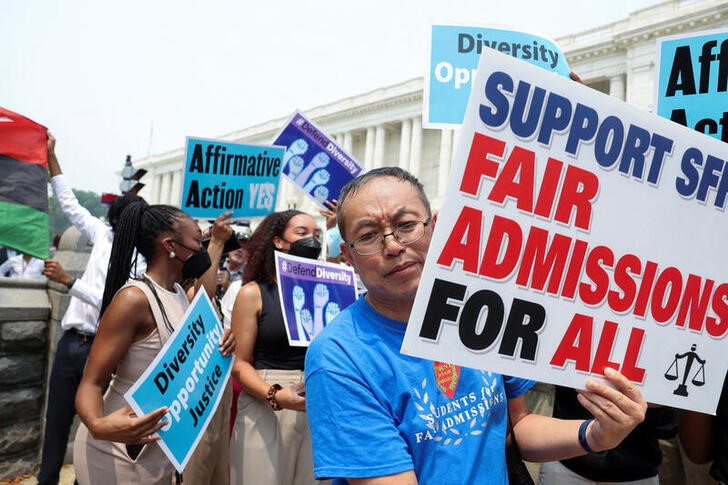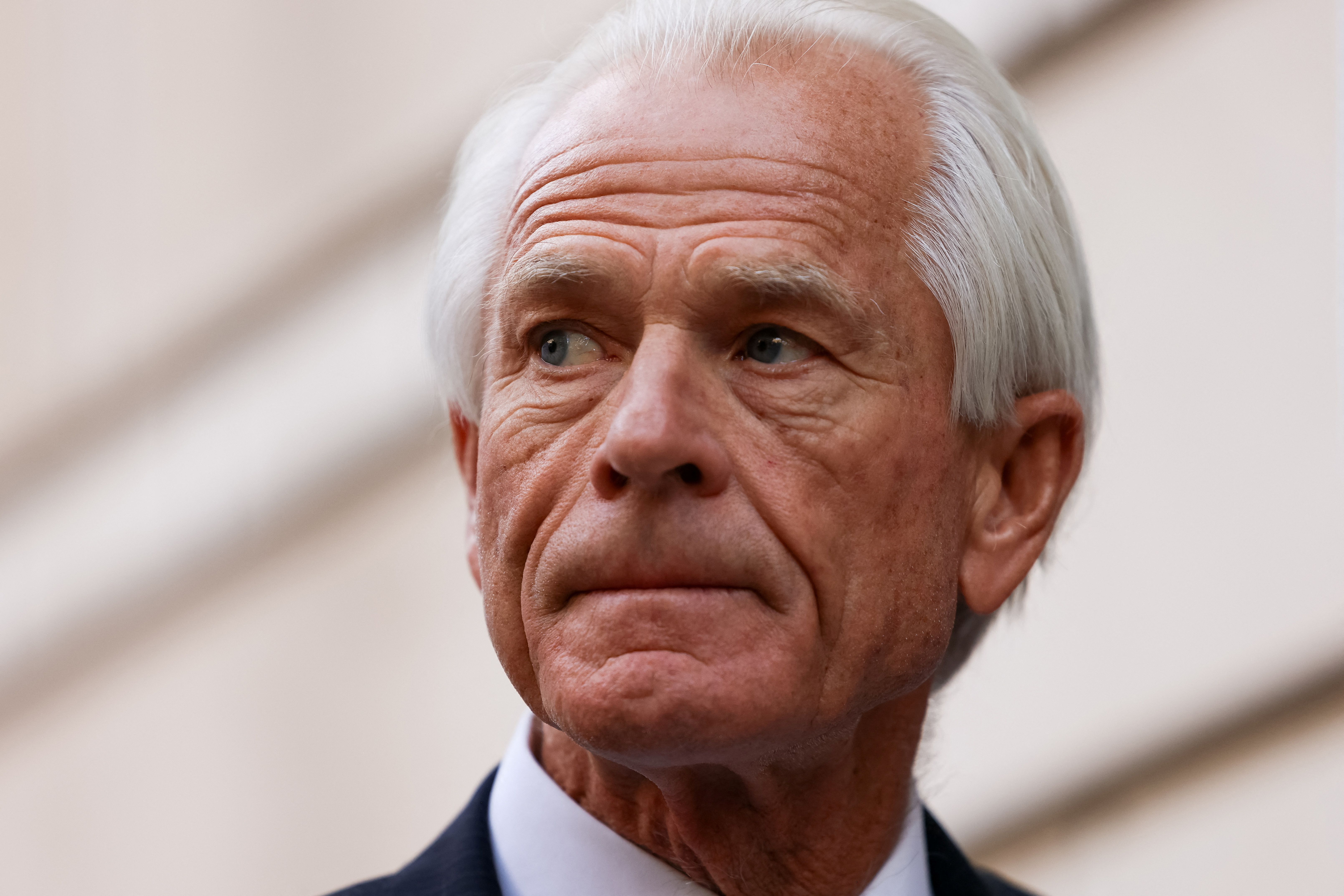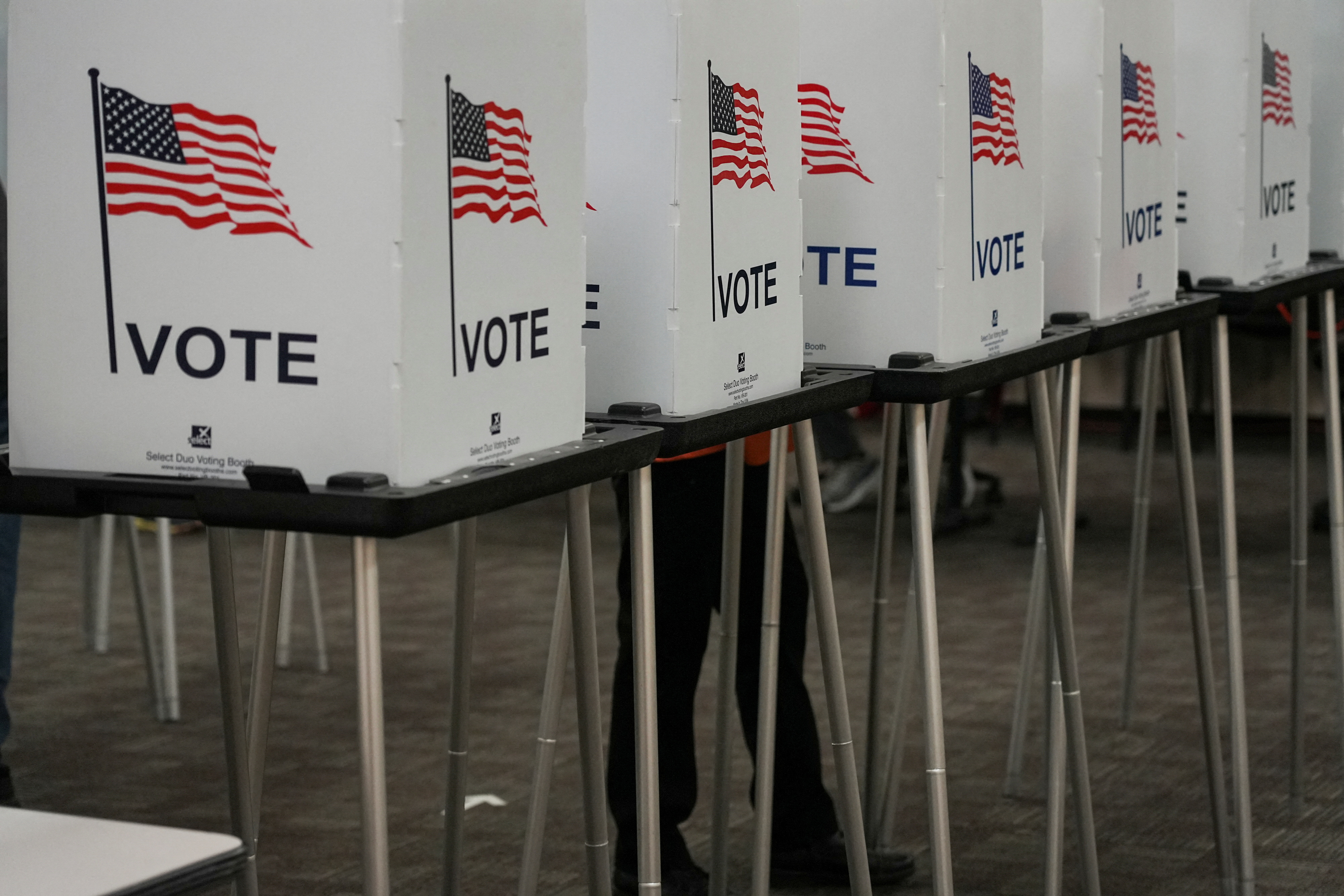Legal attacks on diversity programs present crucial test for companies

Demonstrators for and against the U.S. Supreme Court decision to strike down race-conscious student admissions programs at Harvard University and the University of North Carolina confront each other, in Washington, U.S.. REUTERS/Evelyn Hockstein Acquire Licensing Rights
Sept 4 (Reuters) - The U.S. Supreme Court’s decision in June that banned race-conscious college admissions has unleashed a new wave of political and legal attacks against corporate America’s decades-old anti-discrimination policies.
The uptick in political pressure and litigation is continuing even though the high court's ruling didn't directly address employment law, putting corporate America’s public commitments to diversity and racial justice to a crucial test. To my mind, even recent history suggests that many U.S. companies are likely to take a significant step backward.
Conservative activists and politicians leading this push, like Edward Blum and former members of President Donald Trump's administration, have argued that the very act of categorizing people by race is pernicious and unlawful, citing Constitutional provisions originally enacted to protect Black former slaves.
At the same time, they’ve also made it fairly clear that their more central objection is based on a belief that programs aimed at increasing minority representation or even education about America’s history of white supremacy — policies to address systemic discrimination, in other words — are harmful to white Americans.
The cases and threats of litigation include suits by conservative-backed groups against companies like Kellogg's, for having diversity initiatives; a case against a venture capital fund devoted to Black women-owned businesses; and even letters from Republican Senators warning the country's largest businesses and law firms that they will face Congressional oversight and private lawsuits if they continue programs aimed at diversifying their workforces.
The cases attacking race-conscious policies don't have much legal merit, in my view.
The corporate programs targeted by conservatives were not outlawed in the Supreme Court case, Students for Fair Admissions v. Harvard, which addressed laws governing education, rather than employment. The ruling also acknowledged that the Constitution permits consideration of race when there are compelling reasons. It's also worth noting that the Supreme Court firmly rejected the argument that the Constitution requires "color-blindness" in a recent voting rights case.
Moreover, the legality and propriety of these programs has been beyond question at many companies for decades. More than 95% of top global enterprises report having formal diversity programs, and more than a third of the Fortune 500 have a diversity executive, according to a brief in the Students for Fair Admissions case by some of largest businesses in the country.
Still, there is plenty of cause for concern that companies will acquiesce to the mounting pressure.
One noteworthy example that predated the Harvard decision involved Coca-Cola’s former general counsel, Bradley Gayton, who introduced bold diversity guidelines at the company in 2021. Gayton was publicly lauded initially. But, months afterward, the company was threatened with lawsuits by a group associated with Blum and by several unidentified shareholders. Gayton was out of the job after less than a year, and the company backed off the announced initiatives.
Coca-Cola did not respond to a request for comment.
Alvin Tillery, director of Northwestern University’s Center for the Study of Diversity and Democracy, told me he believes the largest businesses "are certainly ready to defend these policies," but that mid-size and smaller businesses could be less committed to defending them for reasons including ideology or a thinner, less diverse customer base.
“I’m not optimistic those organizations will put up a fight," or if they might instead "breathe a sigh of relief." Tillery said.
Big businesses have faced criticism for years for resisting commitment or failing to follow through on diversity goals.
Many diversity advocates remained skeptical even after U.S. companies pledged money and proclaimed their commitment to racial justice issues in 2020, in the wake of the national debate on race spurred by the police murder of George Floyd.
They pointed to decades of unmet diversity goals, despite millions spent annually. In July 2020, Equal Employment Opportunity Commission data showed that just 3% of executive and other top-level roles were held by Black employees, and just 4% by Latino people, for example.
Their concerns seem warranted, in retrospect. As recently as February, a LinkedIn report showed that the scramble to hire professionals to implement diversity programs has actually reversed course: "chief diversity officer" was the fastest-growing C-suite role in 2020 and 2021, but hiring for that position declined 4.5% in 2022.
Reuters reported last month that 36% of 388 new directors added at the top U.S. corporations over the past year self-identified as racial or ethnic minorities — down from 46% the year before.
Tillery said corporate leaders are generally sincere about their commitments to diversity, in his experience, but worries the new legal push could unsettle them.
“Why does that happen? I think because conservative and center-right older men are overrepresented on these boards and in C-suites, and they get nervous when people they have a social compatibility with push back on what they’re doing,” Tillery said.
Now more than ever, corporate America’s resolve on diversity and inclusion is being put to the test. We should hope they can show some improvement over their past grades.
Reporting by Hassan Kanu
Our Standards: The Thomson Reuters Trust Principles.







